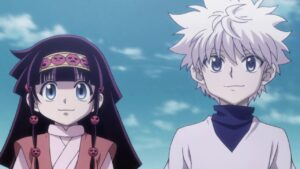The term “Onii Chan” has permeated various aspects of popular culture, gaining recognition even beyond its native Japanese context. To a non-Japanese speaker, the term might be encountered primarily in anime and manga, where it is often used to address or refer to an older brother. However, “Onii Chan” encompasses more than its literal meaning, reflecting complex social and familial relationships within Japanese culture.
What Does “Onii Chan” Literally Mean?
“Onii Chan” is a term in Japanese that is traditionally used to refer to one’s older brother. “Onii” means older brother, and “Chan” is an honorific, a form of address, often used to refer to children, females, or close friends. It carries a sense of endearment and familiarity. So, “Onii Chan” is a colloquial, affectionate way to say “older brother” in Japanese. You may also like this What Does Onii Chan Yamete Kudasai Mean?
The Structure of Honorifics
In the Japanese language, honorifics play a vital role in conveying respect, politeness, and the nature of relationships between individuals. Some common honorifics include “-san”, “-sama”, “-kun”, and “-chan”. The choice of honorific can reflect the speaker’s perception and feelings about the person being addressed.

The Cultural Significance of “Onii Chan”
In Japanese culture, family and relationships hold significant value, and this is reflected in the way family members address each other. The term “Onii Chan” is steeped in cultural nuances and familial respect, often symbolizing the deep bond between siblings.
Role of an Older Brother
Within a family structure, the “Onii Chan” or older brother, is often seen as a protector and a guide to the younger siblings. In Japanese families, older brothers are expected to set examples and look out for their younger siblings, helping shape their character and values.
Familial Harmony
The emphasis on familial roles and relationships in Japanese culture contributes to a harmonious family environment. This harmony is maintained through respectful communication and addressing each other with appropriate honorifics. “Onii Chan” signifies a balanced mixture of respect, love, and closeness between siblings.
“Onii Chan” in Pop Culture
Anime and manga have popularized “Onii Chan” worldwide. In these mediums, the term is used to portray various relationship dynamics, often emphasizing the protective and caring nature of the older brother.
Anime and Manga Representation
In anime and manga, “Onii Chan” is not only used to represent blood-related brothers but also male figures who are older and share a close bond with the speaker. This representation allows viewers and readers to explore the intricacies of Japanese familial relationships and the nuances in their interactions.
Global Influence
Through the widespread popularity of anime and manga, “Onii Chan” has become a recognized term among international fans. It has facilitated a greater understanding and appreciation of Japanese culture and familial structures globally, influencing how people perceive and interpret relationships depicted in Japanese entertainment media.

Understanding “Onii Chan” in Different Contexts
The use of “Onii Chan” is versatile, reflecting various emotional tones, contexts, and intentions in communication.
Variations and Alternatives
Depending on the level of formality and the relationship between the speakers, “Onii Chan” might be replaced with other terms such as “Onii San”, “Onii Sama”, or “Aniki”. Each variation holds its own connotations and level of respect or intimacy.
Beyond Familial Bonds
Beyond the family setting, “Onii Chan” might also be used to address non-related older males within close-knit communities, schools, or friend groups. In these contexts, the term may convey respect, admiration, or affection, similar to its usage within the family.
Conclusion
The term “Onii Chan” is a multifaceted expression in the Japanese language, representing more than just a familial title for an older brother. It is a manifestation of the cultural emphasis placed on familial relationships, respect, and the roles within a family structure in Japan. The usage of “Onii Chan” and its variations reflects the depth of Japanese interpersonal relationships, the nuances of which are enriched by the cultural context and familial harmony inherent to Japanese society.
From its traditional roots to its modern representation in anime and manga, “Onii Chan” serves as a lens through which non-Japanese speakers can explore and understand the subtleties of Japanese culture and familial bonds. It is a symbol of the respect, endearment, and closeness that characterize Japanese familial interactions, making it a significant term to comprehend for anyone interested in the Japanese language and culture.


